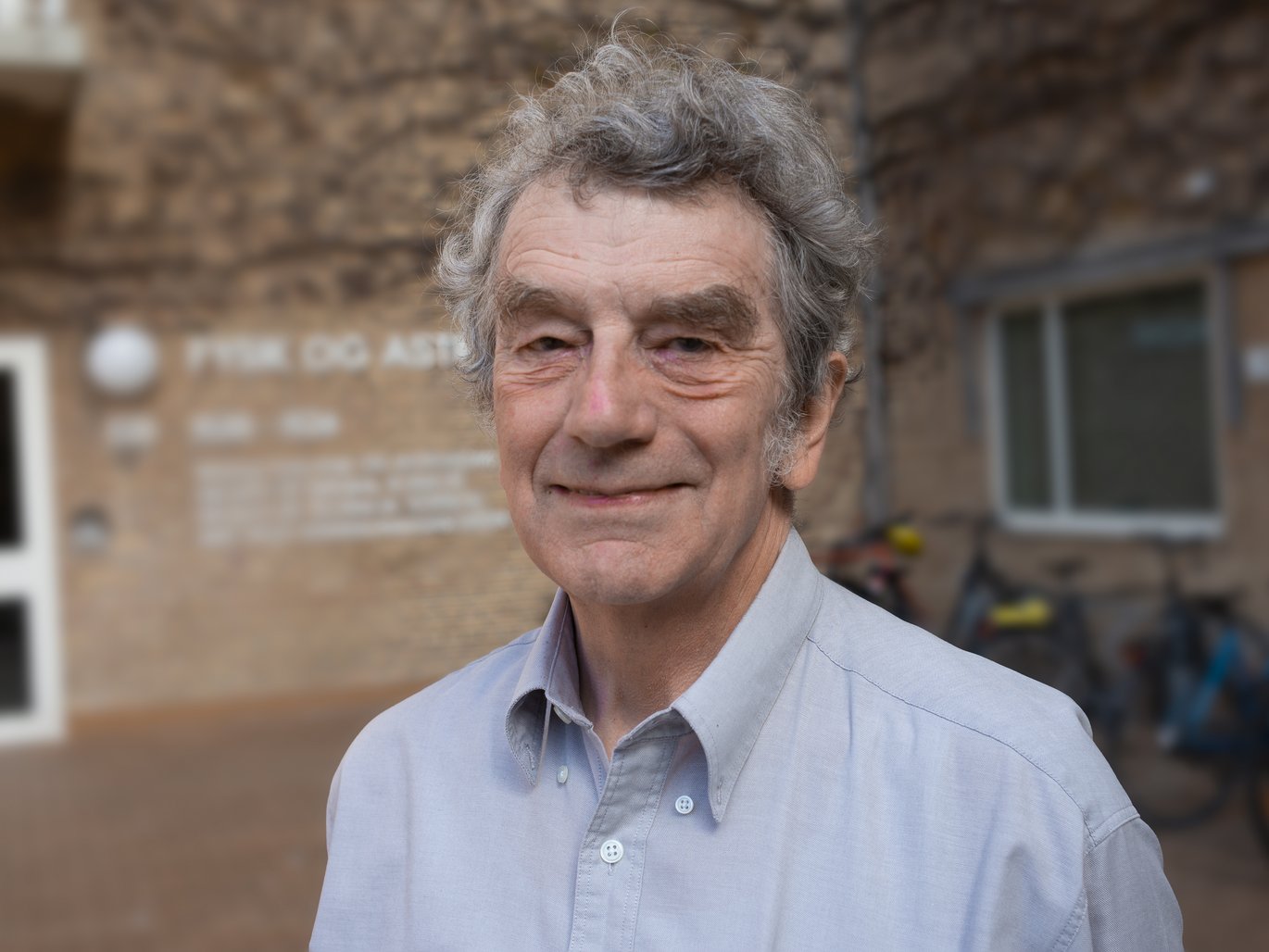Astrophysicist from Aarhus Universitet becomes the first Dane to receive the prestigious Kavli Prize
Professor of astrophysics Jørgen Christensen-Dalsgaard from Aarhus University will be the first Dane to receive the Norwegian Kavli Prize for outstanding scientific research. The prize is one million dollars. He will share the prize with two other researchers within the same field of research: asteroseismology. One of them is affiliated with Aarhus University as an honorary doctor.

Today, the Norwegian Academy of Science and Letters announced the 2022 Kavli Prize laureates, and for the first time ever, a Danish researcher is among the laureates.
Professor Jørgen Christensen-Dalsgaard from the Department of Physics and Astronomy at Aarhus University has been awarded the prize for his major role in developing seismic studies of the sun and other stars over the past 40 years. The prize will be awarded at a ceremony in the Oslo Concert Hall on 6 September in connection with the Kavli Prize Week.
The Kavli Prize is awarded every second year to researchers in three different fields: astrophysics, nanoscience and neuroscience.
Pioneer in researching starquakes
And this year’s Kavli Prize in astrophysics is awarded to three pioneering researchers and driving forces in the field of helio- and asteroseismology:
- Jørgen Christensen-Dalsgaard, Aarhus University, Denmark
- Conny Aerts, Katholieke Universiteit Leuven (KU Leuven), Belgium, and Honorary Doctor at Aarhus University
- Roger Ulrich, University of California, Los Angeles, USA
The field is referred to as helioseismology when studying the sun and as asteroseismology when studying other stars.
Just as seismologists can discover a lot of things about the interior of the earth by measuring seismic waves from earthquakes, astronomers can study the interior of the sun and other stars by observing starquakes, i.e. vibrations on the surfaces of stars.
This enables them to determine the age of a star, its radius and mass, and how it rotates.
...and faraway planets
This knowledge can be used, for example, to learn about the planets that revolve around the stars.
Jørgen Christensen-Dalsgaard has particularly been a pioneer in research on the latter aspect, i.e. the use of asteroseismology to study exoplanets.
As the head of the basic research centre, the Stellar Astrophysics Centre (SAC) at Aarhus University, he has been deeply involved in the study of star-quakes and exoplanets from the two NASA space telescopes, Kepler and TESS. He has organised the more than 500 researchers at the TESS Asteroseismic Science Consortium (TASC).
An experienced award winner
The Kavli Prize is just the latest of a large number of prizes and honorary awards won by Jørgen Christensen-Dalsgaard, including the Carlsberg Foundation Research Prize and the Rigmor and Carl Holst-Knudsen Award for Scientific Research. He is also a member of the Royal Danish Academy of Sciences and Letters, the Royal Astronomical Society and (since recently) the American National Academy of Sciences.
"It's a bit overwhelming with these honorary awards. But, of course, I’m honoured and proud, and the Kavli Prize ranks almost at the same level as the Nobel Prize, although the amount is slightly lower. I’m also pleased that the three of us, and our field of research, have been selected for this prize. Roger started with the sun, I went on with the sun and cooler, brighter sun-like stars such as yellow and red dwarfs, while Conny ventured into the heavier and hotter stars. This is how we’ve divided it between us. And then Conny and I wrote the textbook Asteroseismology together," says Jørgen Christensen-Dalsgaard.
Rector Brian Bech Nielsen at Aarhus University congratulates Jørgen Christensen-Dalsgaard on the prize.
"The Kavli Prize is one of the greatest honours that an astrophysics and astronomy researcher can be considered for. Therefore, I’m very excited to learn that, together with two highly acclaimed and very talented international colleagues, Jørgen Christensen-Dalsgaard has been awarded the prize this year. This is very well-deserved. Over the years, Jørgen has made a tremendous effort in the field of astrophysics, and he has delivered several trailblazing breakthroughs that have deepened the understanding and knowledge in a field of research that to most people, quite literally, seems remote. Jørgen has represented our strong astronomy and physics environment at the university in an exemplary manner, and I am very proud that Aarhus University is home to such a prominent researcher."
Jørgen Christensen-Dalsgaard I sabout to retire and will become an emeritus professor on 30 June. He is presented with the prize by the King of Norway on 6 September.
About the Kavli Prize:
The Kavli Prize is awarded every second year by the Norwegian Academy of Science and Letters in collaboration with the Norwegian Ministry of Education and Research and the Kavli Foundation to researchers who have achieved ground-breaking results within astrophysics, nanoscience and neuroscience. The laureates in each field will share 1 million USD.
The founder of the prize is the Kavli Foundation, which was established by Fred Kavli, a Norwegian-American businessman and multi-millionaire with a keen interest natural science.
When he founded the prize in 2005, he explained the choice of the three research fields by pointing out that they constitute the largest, the smallest and the most complex area, respectively. He considered these research fields as the most exciting areas in 21st century and onwards.
The prize was first awarded in 2008. A total of 58 prominent researchers have been awarded the Kavli Prize, and several of them went on to win the Nobel Prize.